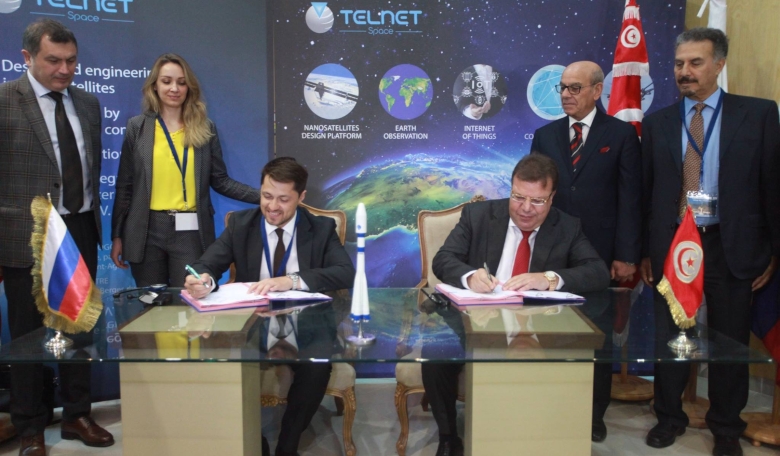TELNET Group and GK Launch Services signed a contract for the launch of the first Tunisian Challenge ONE satellite aboard the Russian Soyuz-2.1a integrated with the Fregat upper stage in 2020.
The signing ceremony chaired by Mr. Mohamed FRIKHA, CEO of TELNET Group, and Mr. Alexander V. SERKIN, CEO of GK Launch Services, was held at the Sfax Digital Research Center.
Challenge ONE is a scientific research and innovation project offering new concepts in the information technologies and their practical applications. The results of Challenge ONE in-orbit operation will be used for building a constellation of 30 spacecraft.
One year after the first announcement of the satellite project, TELNET presented the achievements of their designers during the first public in-lab demonstration of the Challenge ONE satellite.
An agreement on cooperation in the field of aerospace R&D between TELNET Group and the Digital Research Center of Sfax was also signed during the event.
TELNET, founded in 1994, certified ISO9001 and TL9000, is a group of companies in software, mechanical and electronic product engineering. The group offers nearshore and offshore consulting, R&D services and expertise in telecom, multimedia, energy, payment solutions and aerospace.
GK Launch Services is an operator of commercial launches. The company was established by the decision of Roscosmos and is authorized to conclude commercial contracts for the launch of spacecraft using Soyuz-2 family launch vehicles from the Russian spaceports.











